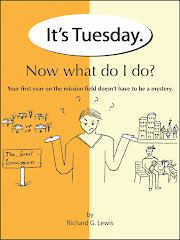 Kevin Vanhoozer, in an article entitled The New Theologians: Creating a Theological Symphony writes – “The goal of theology is wisdom, not knowledge.”
Kevin Vanhoozer, in an article entitled The New Theologians: Creating a Theological Symphony writes – “The goal of theology is wisdom, not knowledge.” It’s 4 a.m. in Delhi. Jetlag has me and so as I wait for daylight to catch a flight to Bangalore, I read random thoughts on wisdom versus knowledge. Vanhoover’s comment on wisdom captures the essence of what I want to accomplish in the next two weeks I will be in the classroom of DMin. students. Hopefully, knowledge is something I will pass on to my learners, but the greater task will be to transfer wisdom that is associated with that knowledge.
The three ingredients in attaining wisdom is knowledge, practice and Divine insight.
Knowledge is not necessarily cognitive dump, as some accuse the function of education. While it is true that much of general education are bits of pieces of information which may or may not be relevant to life, specialized knowledge is essential for anyone with a task to perform. Whether the subject be how to prune a tree or how to start a business, knowledge is vital.
Practice is the second element preceding wisdom. As Francis of Assisi puts it, "Mankind has as much knowledge as it executes." To posses knowledge without application is as useless as a third thumb. One of the great challenges of any teacher is to force the student to apply what knowledge he/she receives. If they cannot, or will not, practice what they have learned then the knowledge they receive will be added to the millions of other pieces of information they will amass in a lifetime that will fade as smoke on a windy day.
Divine insight is the igniter, the mechanism that determines when, where and how knowledge is best applied. The accumulation of knowledge, though needed, is not wisdom. Having experience, though critical, does not equal success. Apart from God’s impartation one is left with an intellectual empty suit or a mindless daily laborer, no matter what their profession.
Presumptuous of me, I suspect, to advertise my class as applied wisdom rather than applied anthropology. Pretentious, perhaps, to suggest on completion of my course the student will have unique insights for ministry and service for Christ. If, however, that is not what I, or any professor, can offer his/her students who sit at our proverbial feet, then all they can hope for is more knowledge that they will easily forget.
"But if any of you lacks wisdom, let him ask of God, who gives to all generously and without reproach, and it will be given to him."

